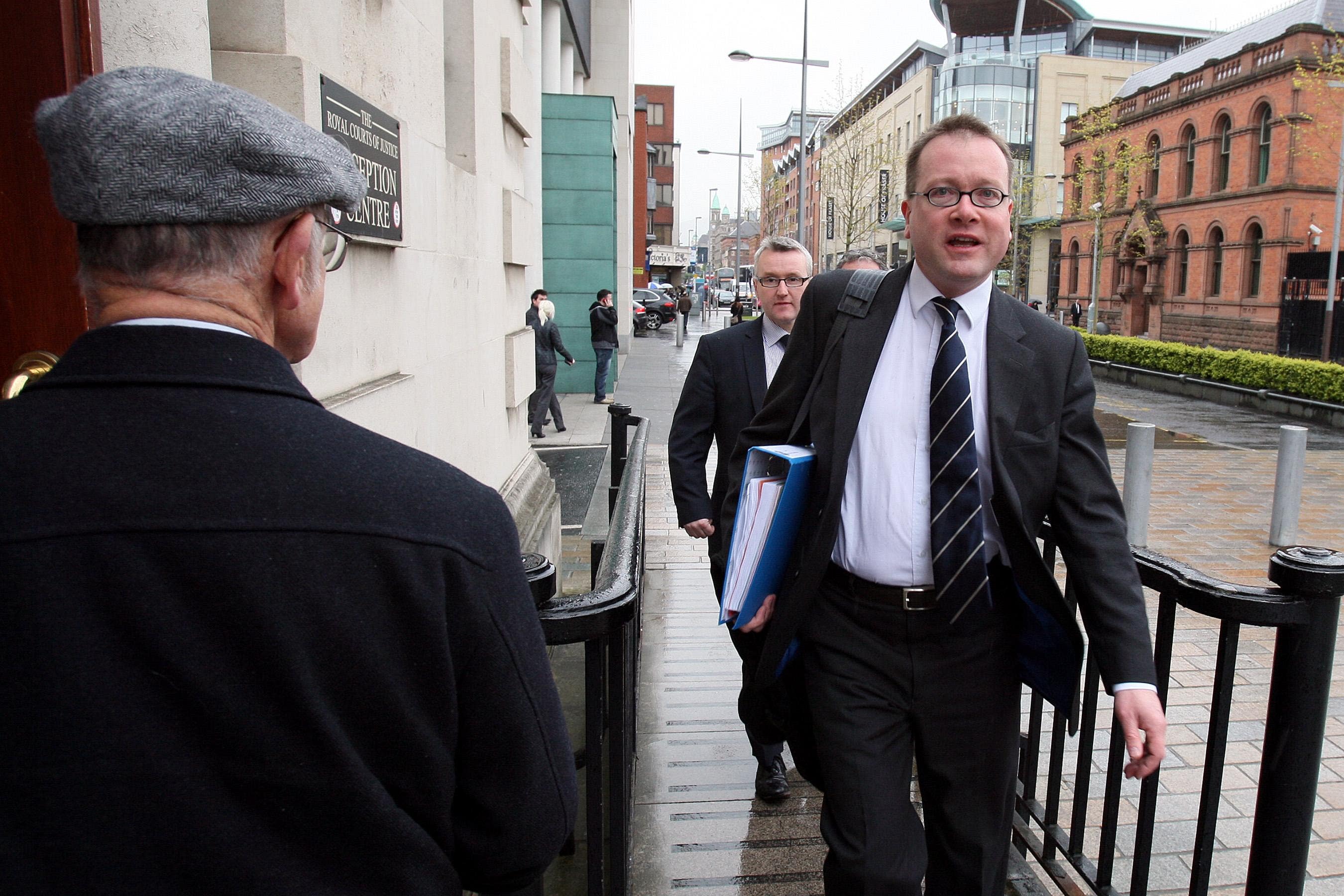New Brexit deal does not strengthen NI’s place in UK – former attorney general
DUP MP Ian Paisley wrote in a new report that he did not think the Windsor Framework solved all the problems of the NI Protocol.

Your support helps us to tell the story
From reproductive rights to climate change to Big Tech, The Independent is on the ground when the story is developing. Whether it's investigating the financials of Elon Musk's pro-Trump PAC or producing our latest documentary, 'The A Word', which shines a light on the American women fighting for reproductive rights, we know how important it is to parse out the facts from the messaging.
At such a critical moment in US history, we need reporters on the ground. Your donation allows us to keep sending journalists to speak to both sides of the story.
The Independent is trusted by Americans across the entire political spectrum. And unlike many other quality news outlets, we choose not to lock Americans out of our reporting and analysis with paywalls. We believe quality journalism should be available to everyone, paid for by those who can afford it.
Your support makes all the difference.A former Northern Ireland attorney general has said the Windsor Framework does not strengthen the constitutional status of Northern Ireland as part of the UK.
John Larkin KC gave the analysis in a new report published by a unionist think tank.
DUP MP Ian Paisley contributed the foreword for the report in which he said his instinctive reaction is that the new deal agreed between the UK and the EU does not solve the problems of the Northern Ireland Protocol.
The Windsor Framework was announced on Monday following months of talks. It seeks to remove post-Brexit trade barriers, creating a new system for the flow of goods into Northern Ireland.
The new report by the Centre for the Union Constitutional Studies Group has been co-authored by loyalist blogger Jamie Bryson.
The report states: “We cannot recommend, in the absence of additional components being added to the framework, alongside some present elements being amended, unionist support for the Windsor Framework.”
In his foreword, Mr Paisley said: “It is my view that unionism will have to dig deep in the coming days to overcome the problems caused by the protocol.
My instinctive reaction to the Windsor Framework remains that the problem is not yet solved
“My instinctive reaction to the Windsor Framework remains that the problem is not yet solved.”
He added: “I am clear from what I have read and heard since 27th February that as Ursula von der Leyen stated, the European Court of Justice is the ‘sole and ultimate arbiter of EU law’ and it will have the final say on all matters of EU law.
“Given that the Windsor Framework will not be legislated for, it is clear that Northern Ireland will remain in a very different position from the rest of the UK.”
Mr Larkin was asked to give a legal analysis on the provisions of the new framework.
He concluded: “Are the proposals contained within the Windsor Framework compatible with the Acts of Union 1800, particularly Article VI thereof? No.
“Do the proposals contained within the Windsor Framework remedy the “subjugation” of Article VI of the Acts of Union 1800? No.
“Do the proposals in the Windsor Framework strengthen the constitutional guarantee respecting the constitutional status of Northern Ireland? No.”
Mr Larkin was the barrister who represented a unionist collective in an unsuccessful legal challenge to the protocol which was heard at the UK Supreme Court.
The DUP, which is currently boycotting the Stormont powersharing institutions, has said it will study the new framework before giving its verdict.
However, a number of party members have already expressed concerns. Lord Dodds has said he does not believe the new arrangements would remove the trade border in the Irish Sea.